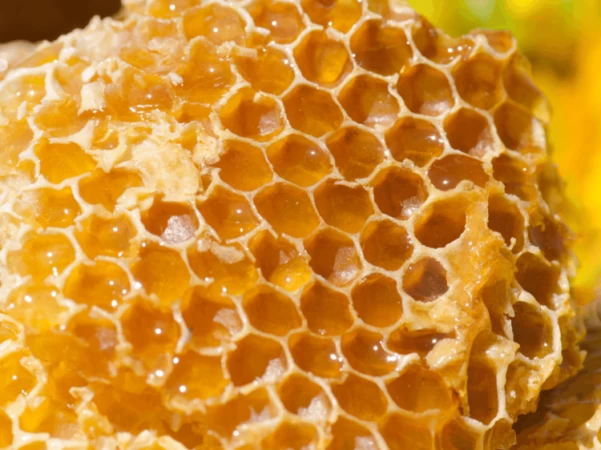
There was an old-time when sugar was not available to sweeten the dishes, but pure honey was used to enhance the taste of our food. Consuming pure natural honey was an assurance to maintain weight and health of people in old time. Not only in old time, but the honey is still preferred by a large number of people living in so many places across the world.
Do you know that honey is available in different varieties depending on therapeutic applications, the place it is taken, and the type of flower is used by bees to collect sweet nectar?
Some nutritional facts about natural honey:
The nutritional value of the honey is highly dependent on the source of the nectar. But there are some nutritional facts that remain the same in all types of honey, which are described as per the FDA.
(Nutritional Facts)
Know more and explore the interesting facts about the varieties of honey that are mentioned below:
Tulsi Honey
Tulsi has been treating so many illnesses since ancient times. Its remarkable medicinal properties offer miraculous results in disorders like cough, running nose, and even cancer. The pure Tulsi honey is abundant in antioxidants that keep our immune system healthy and balances the metabolism. Consuming tulsi honey surely elevates the mood to make people more joyful and happy.
Ajwain (Trachyspermum Ammi) Honey
Infused with Ajwain, this honey is enriched with anti-fungal properties, high in antioxidants, and good with antimicrobial activity. It is highly recommended for the treatment of recurrent cold, indigestion, and acidity.
Buckwheat Honey
Buckwheat honey is a superfood provided by nature, which offers myriads of health benefits like treating cough, deficiency of blood, hypertension, and cardiovascular diseases. The buckwheat honey can be used for marinating meats in roasted and barbecued meat dishes.
Himalaya Honey
Himalaya honey should be preferred to fight against week immunity as it contains anti-viral, anti-bacterial, and anti-fungal properties. Like all the varieties of honey, Himalaya honey is also considered as a powerful antioxidant. Consuming Himalaya honey also treats allergies, skin wounds, and other skin infections.
Clover Honey
Clover honey is derived from the nectar that is collected by honeybees from clover plants. People use it for sweetening tea, coffee, and desserts.
The Clover Honey is considered the safest dietary antibacterial because it has unique phenolic compounds and bee-derived antimicrobial peptides. Also, it is popular due to its sweet and floral taste. The Clover Honey is rich in antioxidants and anti-inflammatory properties.
Lavender Honey
Highly preferred in Europe, Lavender honey can be used for medicinal purpose as it contains tyrosine, anti-fungal substances, and phenolic acids. Tyrosine helps to treat many brain disorders.
Rosemary Honey
The fragrant giving herb is native to the Mediterranean, which is also used to collect nectar by honeybees. Rosemary is a great source of iron, calcium, and vitamin B-6. Honey made from the nectar of Rosemary improves digestion, concentration level, and overall health of a human body.
Cinnamon Honey
The Cinnamon honey is made from anti-viral, anti-bacterial, and anti-fungal properties in order to support a weaker immune system and digestive health of the human body. The cinnamon helps in losing visceral fat and maintains the overall health of the human body.
Honey is a great health booster, which is proven all across the world. The different types of honey offer different health benefits as mentioned above with their types. One can choose as per their priorities but in general, the honey is beneficial for all of us and can be used to eliminate the daily doses of processed sugar. Consuming pure natural honey was an assurance to maintain weight and health of people in old time. Not only in old time, but the honey is still preferred by a large number of people living in so many places across the world.